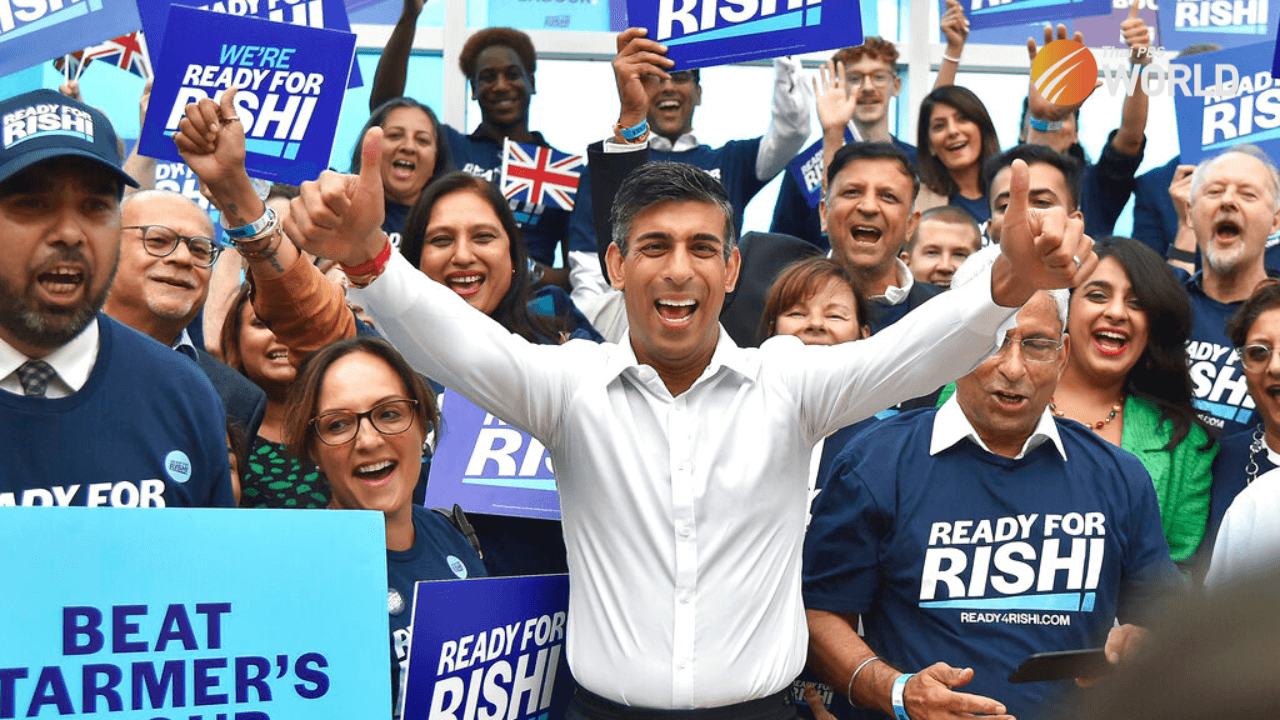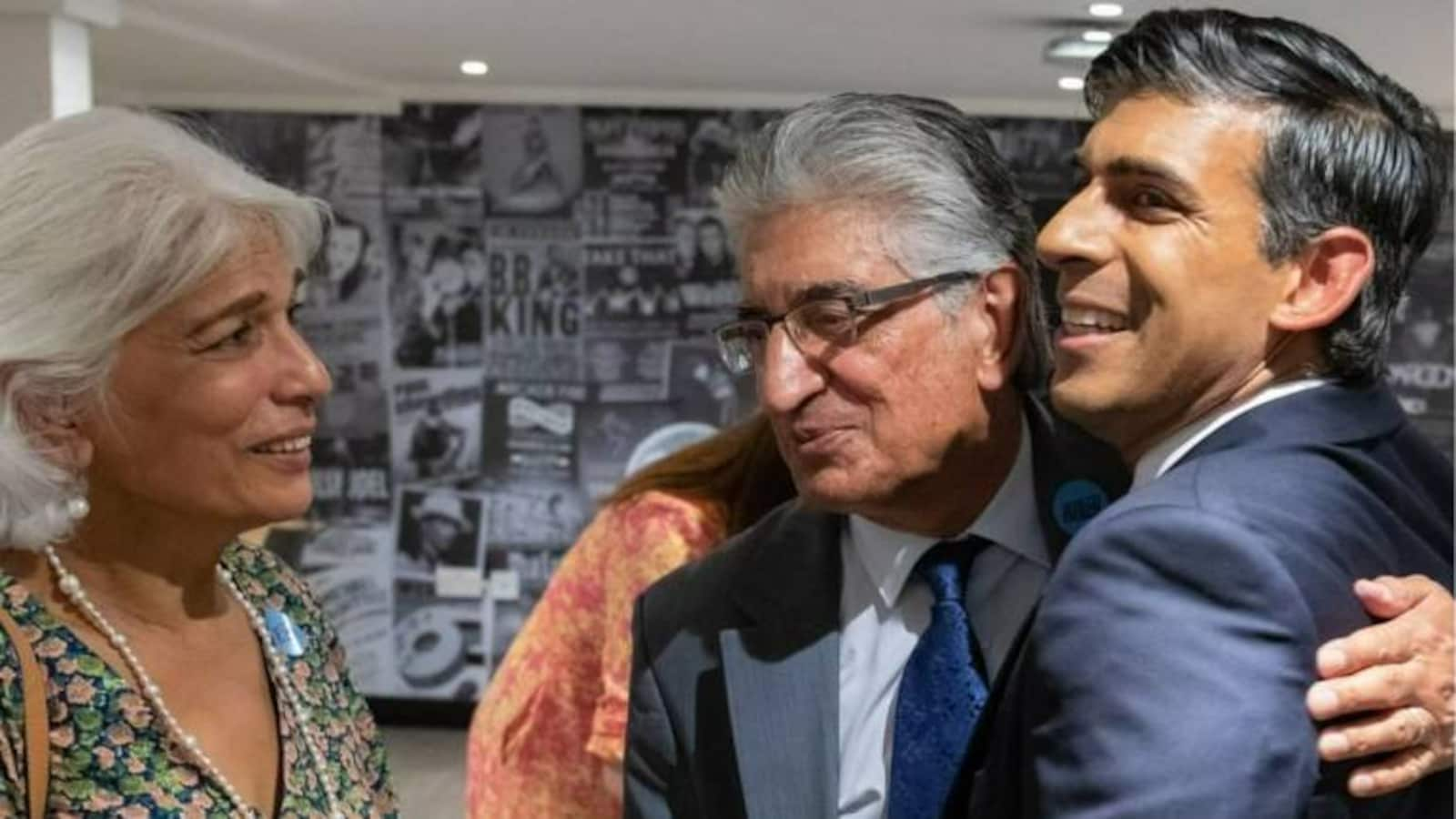Rishi Sunak, the UK’s former finance minister, has become the country’s first prime minister of colour after winning the Conservative Party leadership race on Monday.
Penny Mordaunt, the only candidate standing after Boris Johnson stepped down, could not receive the requisite 100 nominations from Conservative colleagues.
Rishi Sunak was elected Conservative Party leader, and Mordaunt pledged her “all support” for Sunak.
Sunak’s triumph came after Boris Johnson declared late Sunday that he would stand down and not run for office again.
Sunak achieved a spectacular reversal in fortunes just weeks after losing the Prime Ministership to Liz Truss.
The Conservative leadership election, sparked by Liz Truss’ resignation on Thursday, needs candidates to garner the support of at least 100 Conservative MPs.
Only Sunak passed the test, according to senior backbencher Graham Brady.
Rishi Sunak, a son of Indian and East African immigrants, had reached that threshold by Friday night, garnering around 200 nominations – more than half of the Conservative Party’s parliamentary membership.
After Boris Johnson dropped down, Mordaunt was the sole remaining standing candidate.
However, she could not gain the necessary support, ending the leadership election.
If she had run, the election would have been decided by an online vote of the party’s approximately 170,000 members. The findings will not be available until the end of the week.
Sunak’s win came on the first day of the five-day Diwali festival, which celebrates the triumph of good over evil.
Sunak marked the occasion as chancellor of the exchequer in November 2020 by lighting oil lamps on the front steps of 11 Downing Street, the chancellor’s official residence.
Liz Truss quit after only 44 days due to a poor market reaction to her tax-cutting mini-budget, forcing the Conservatives into their second leadership contest since the summer.
She succeeded Johnson in early September, following a government rebellion led by Sunak over a series of scandals, most notably the “Partygate” story involving Covid lockdown-violating parties.
Johnson’s bid to return to Downing Street sparked months of instability and disagreement within the ruling Conservatives.
Backbenchers were concerned that a wave of resignations under Johnson’s resurrected leadership would result in the general election sought by opposition parties. One isn’t expected for another two years.
Johnson cut short his Caribbean vacation on Saturday to return to the United Kingdom.
However, in a sign of his diminishing political standing, Johnson abruptly stepped down on Sunday, admitting that “you can’t govern successfully until you have a united party in parliament.”
“I believe I have much to offer, but I don’t believe this is simply not the right time,” he added, believing he had received the requisite 100 nominations.
Rishi Sunak quickly praised Johnson, saying, “I sincerely hope Boris continues to contribute to the Conservative party at home and abroad.”
Mordaunt claims she is best prepared to take on the opposition Labour Party, which is polling well.
In a piece published in the right-wing Daily Telegraph, she again stressed her commitment to a “lower-tax, high-productivity economy.”
Rishi Sunak maintained a low profile, tweeting only that the country was in a “severe economic crisis.”
“I want to fix our economy,” he proclaimed, “bring our party together and deliver for our country.”
Labour has now declared a general election.
“Tory MPs are ready to hand over the keys to No 10 (Downing Street) to Rishi Sunak without saying a word about how he’d rule,” deputy Labour leader Angela Rayner tweeted.
According to Anand Menon, a politics professor at King’s College London, Sunak becoming Prime Minister was a watershed moment.
“Having a prime minister of Indian descent is a major deal,” he told BBC television just before the result was revealed.
Menon expressed his relief at how little was spoken about it. “In some respects, it appears that we have normalized this,” he observed.











